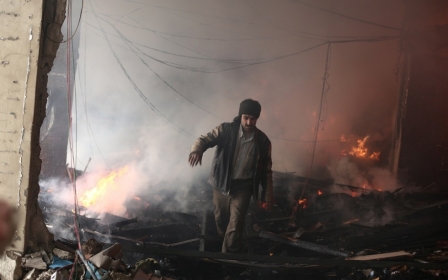Evidence suggests IS used mustard gas in Syria attack

The Islamic State group (IS) has likely carried out chemical attacks on civilians in northern Syria, according to doctors and experts.
Last week, doctors treated 50 patients coming from the town of Marea near Aleppo who suffered from skin lesions, respiratory problems and redness in the eyes after a barrage of IS attacks.
The symptoms, doctors with the Syrian-American Medical Association told the Guardian, were suggestive of exposure to a chemical agent, likely mustard gas.
“This is classic mustard agent symptoms, I have no doubt,” Hamish de Bretton-Gordon, a former commanding officer of the UK Chemical, Biological, Radiological and Nuclear regiment and NATO’s Rapid Reaction CBRN battalion, told the Guardian.
The testimonies raises questions about whether IS gained access to Syrian government chemical weapons stockpiles that were thought to have been destroyed or degraded in 2013 as part of a Russian-brokered agreement.
While Pentagon officials did not firmly rule it out, they reportedly told the Guardian that they had seen no “confirmable link” indicating that IS had unleashed a chemical attack on Aleppo.
IS may have smuggled chemical weapons from Libya or seized materials in Iraq, leftover from Saddam Hussein's weapons programme, experts told the Guardian.
The militant group's use of chemical agents would be a significant escalation its fight against rebel groups.
Stay informed with MEE's newsletters
Sign up to get the latest alerts, insights and analysis, starting with Turkey Unpacked
Middle East Eye delivers independent and unrivalled coverage and analysis of the Middle East, North Africa and beyond. To learn more about republishing this content and the associated fees, please fill out this form. More about MEE can be found here.




